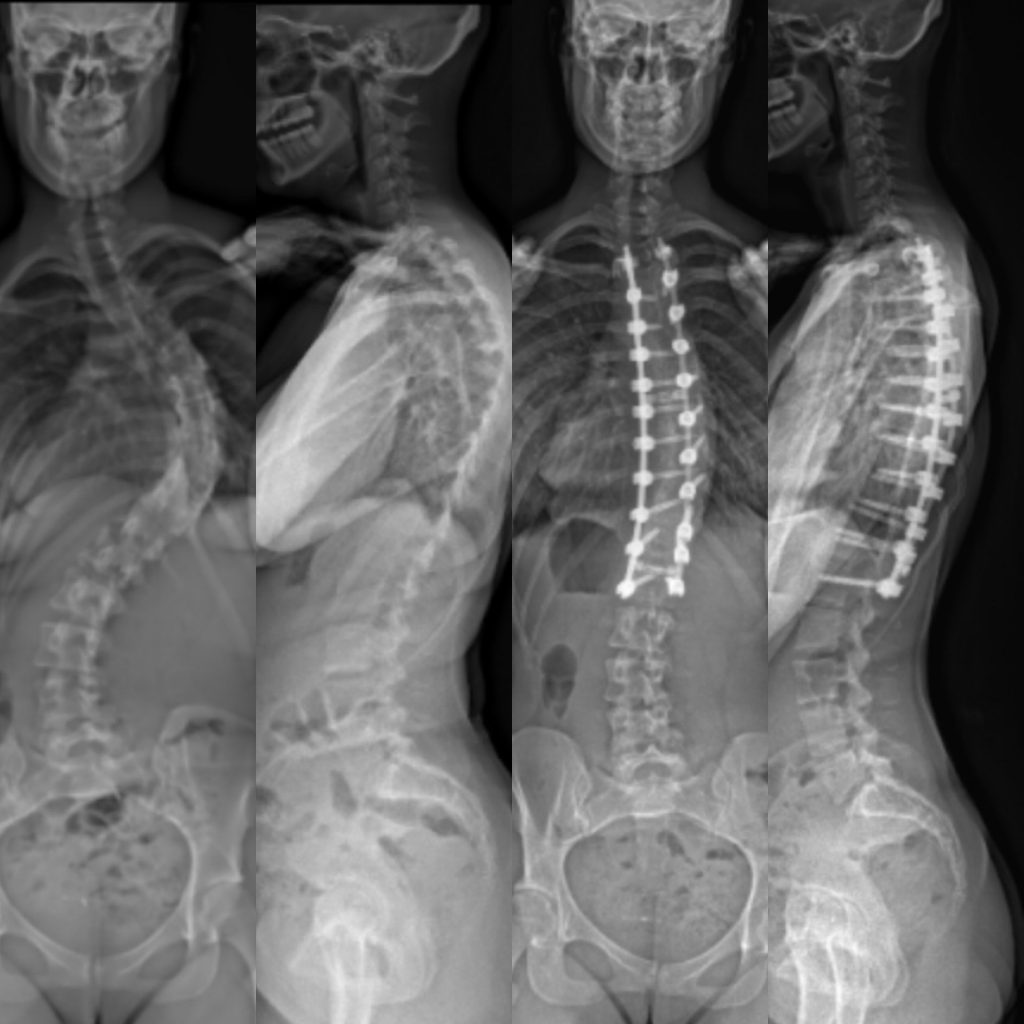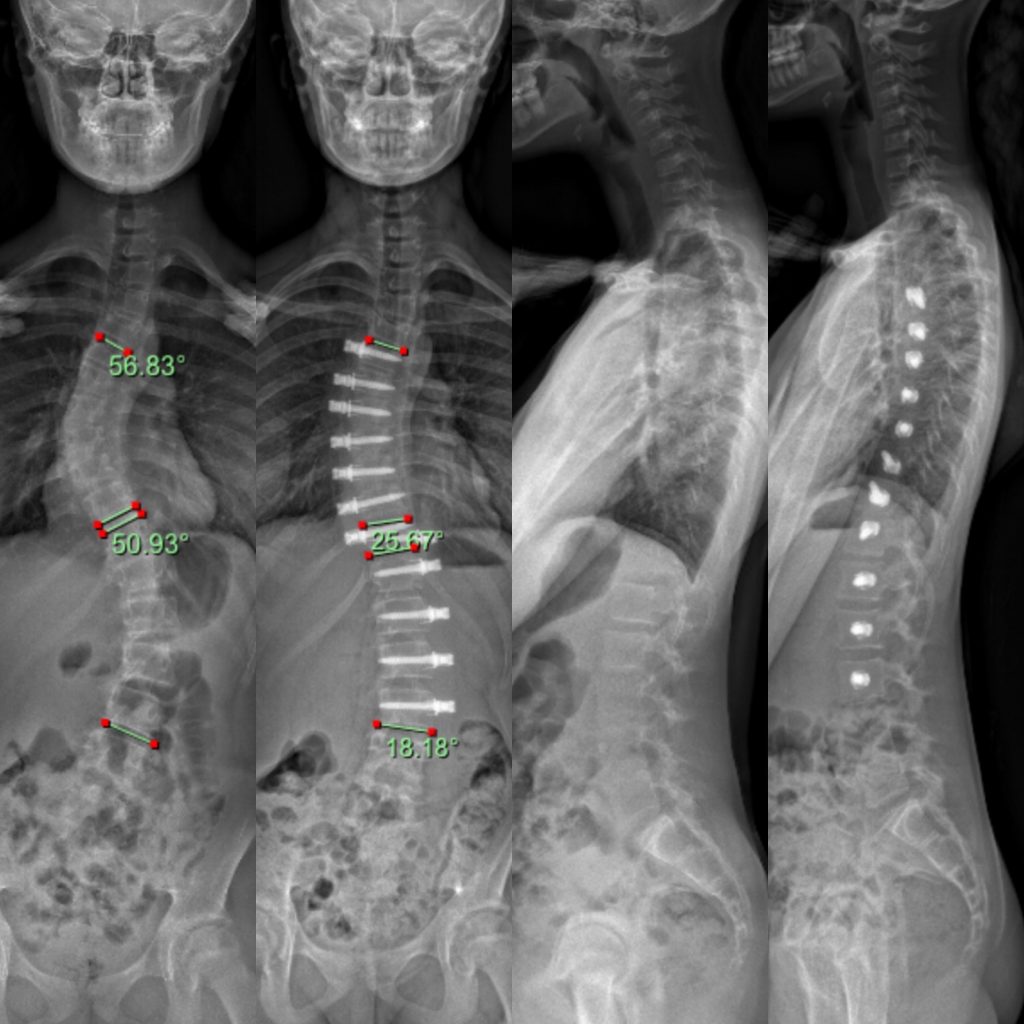Your Scoliosis Team
Surgical and
non-surgicalScoliosis services

Surgery for Scoliosis and other spinal conditions
For some patients, surgery is the only option to prevent a scoliosis worsening. In other advanced cases, a surgical consultation is often advised prior to beginning non-surgical treatment.


When do I need Scoliosis Surgery
- There are 3 main reasons to consider scoliosis surgery. 1) When a scoliosis curve is very large to stop it from progressing further. 2) When a person is very concerned about how they look because of the scoliosis 3) in serve cases to preserve lung function.
- A spinal surgeon will assess the patient and may require x-rays and CT or MRI scans
- Scoliosis surgery usually involves fusing the bones of the spine into a straighter alignment
- Sometimes rods are inserted to hold the spine straight
- In certain cases new approaches such as tethering maybe an option
- If you are unsure of the degree of scoliosis, you can start by booking a consultation.
What is Vertebral Body Tethering (VBT)?
- Vertebral Body Tethering (VBT) is a new type of surgery technique that does not involve spinal fusion. It is becoming an alternative to traditional spinal fusion surgery.
- VBT is usually a one off surgery, rarely requiring surgical upgrades
- As there is no fusion of the vertebrae, the spine can keep its flexibility and allow room for growth
- Retaining spinal flexibility allows the patient to return to sports or other activities
- Because the technique is minimally invasive, it can lead to a shorter hospital stay and quicker recovery
- The flexible cord will generates a noticeable difference in posture soon after surgery
- Many patients are able to be up and walking on the same day as their surgery
Book a Surgical appointment
Our Services

Scoliosis Specific Exercise Programs

Custom 3D Bracing

